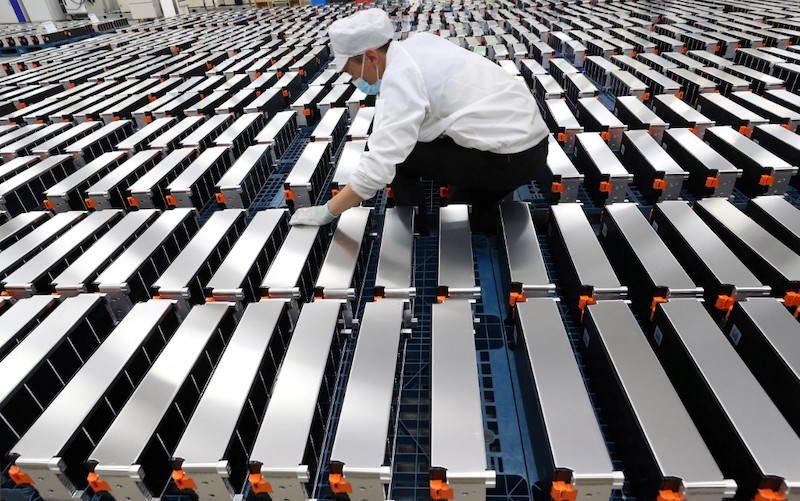Surging commodities prices, especially lithium, have led to significant cost inflation in battery materials but that’s helping China manufacturers gain global maker share, says Credit Suisse.
Global carmakers have responded by switching to less dense lithium ferro-phosphate (LFP) batteries, which China is well placed to supply worldwide.
China’s LFP market share is estimated to rise to 67% by 2025, up from 38% in 2020, the Swiss bank forecast.
“Chinese players are taking global market share,” Credit Suisse wrote. “Such a major shift would have significant implications across the global battery value chain, which was originally geared towards nickel-based batteries.”
Chinese battery makers and battery materials suppliers, which are already well placed in the LFP supply chain with a low-cost advantage, should be best positioned to ride the LFP demand surge, the note said.
South Korean battery makers, which used to focus solely on nickel-cobalt-manganese batteries (NCM), are responding by announcing LFP capacity plans due to come on stream in 2024 and 2025.
Surging commodity prices are eroding margins across the global battery value chain, Credit Suisse says.
Global EV Market
The MSCI World Automobile index outperformed the MSCI World Index by 14% in 2021, the bank noted, saying this outperformance was mainly led by the new electric vehicle (EV) players with higher EV sales volume growth with capability of providing various mobility services.
However, considering the high valuations of the new EV players versus that of traditional manufacturers, the bank expects the valuation and share performance divergence gaps between traditional automakers and new EV players to shrink in 2022.
Credit Suisse forecasts global EV market penetration to reach 45% of new passenger vehicle sales in 2030. In 2021, EVs accounted for 9% of global new passenger vehicle sales, marking sharp growth from 2020’s 4.4%.
Global EV sales were up 88% year-on-year in January 2022, with China up 155%, US up 104%, and Europe up 67%.
“EV demand is growing further, given substantial EV uptake in the leading Chinese and European markets, as well as the introduction of US mandates supporting EV uptake and Japan’s commitment to carbon neutrality,” Credit Suisse said.
The bank forecasts global car demand growth of 6.4% year-on-year to 86 million units in 2022, led by China, with 9% growth, and the European Union with 6.5% growth.
- George Russell
READ MORE:
Electric Vehicle Race Heats Up as Detroit Makes Its Move – WSJ
Foreign Automakers Plotting Japan Electric Vehicles Push
Hyundai Launches Plant to Make Indonesia’s First Electric Vehicle























